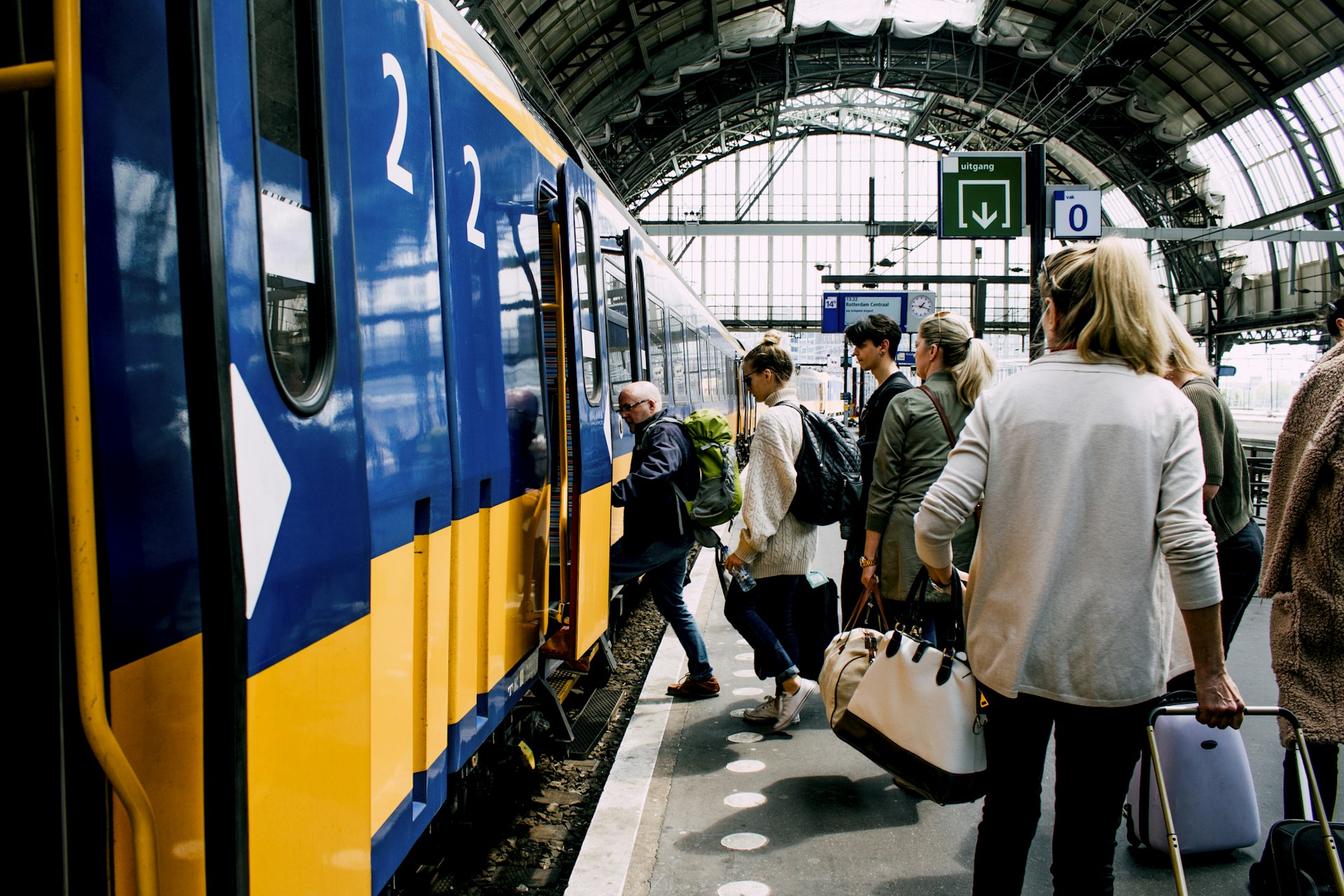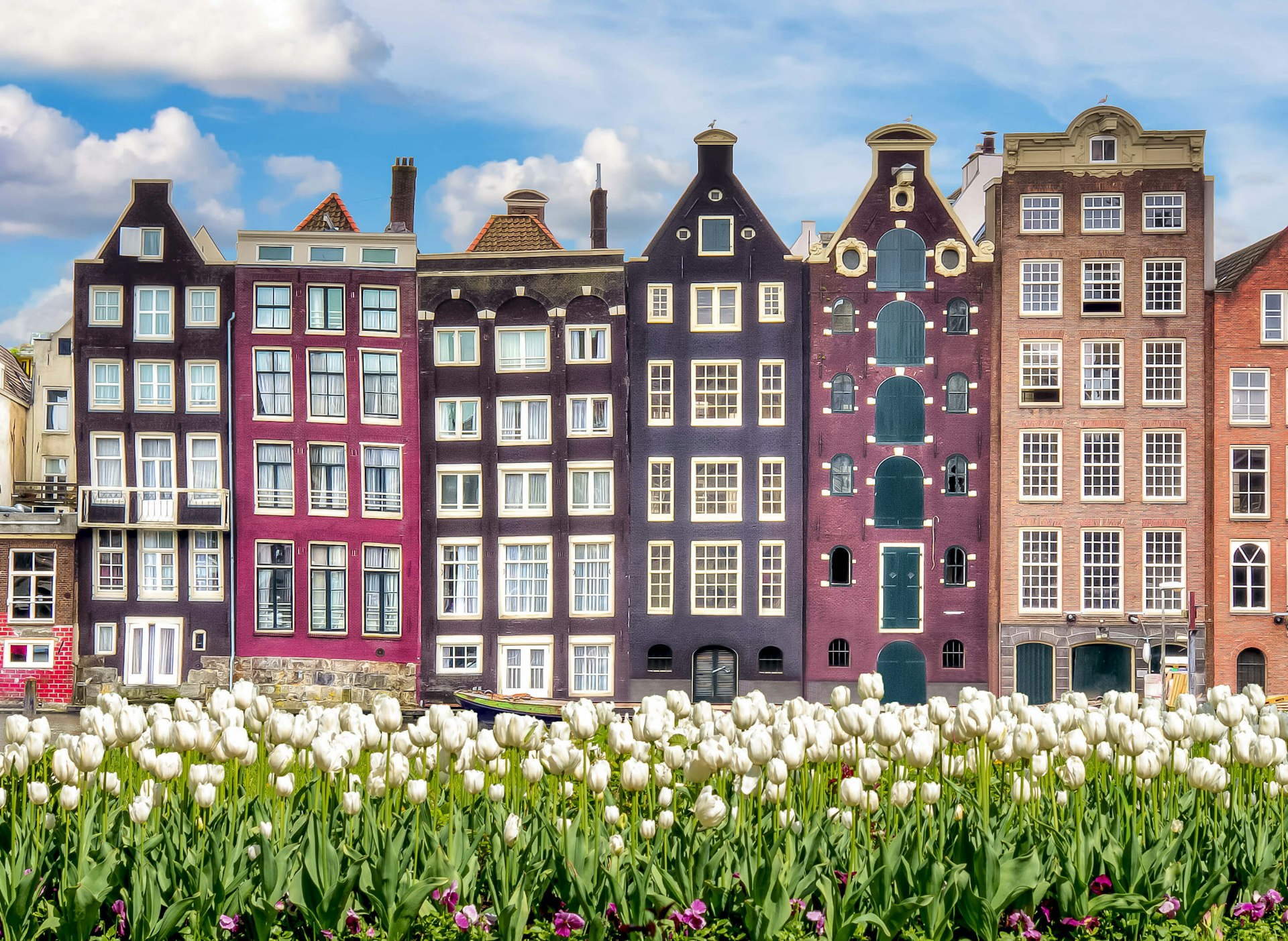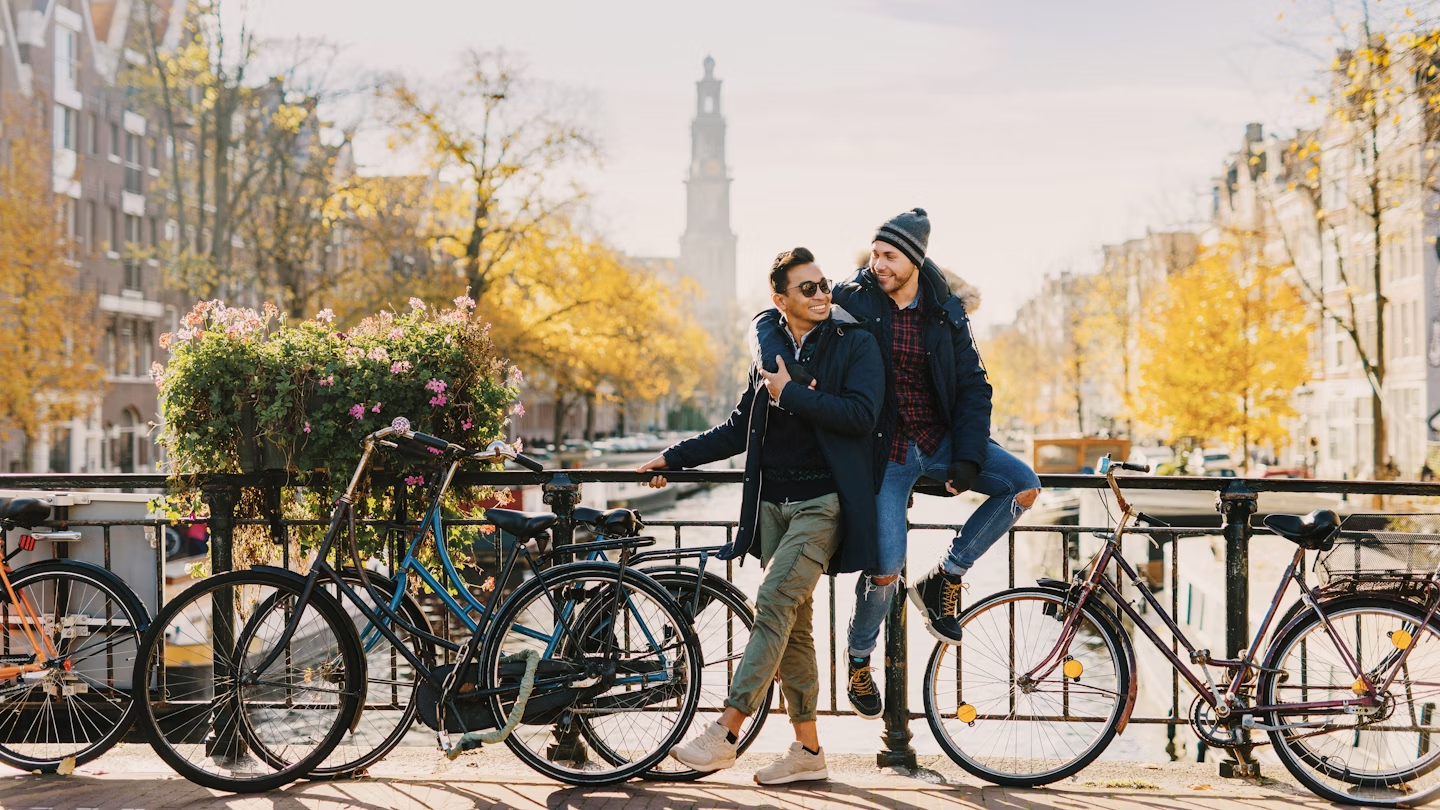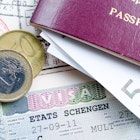With its small size and immense popularity, you should be prepared for high prices when visiting Amsterdam, one of Europe's favorite city break destinations.
However, with some advance planning and some inside know-how, Amsterdam can be surprisingly affordable. Visiting at quieter times, scouting out bargain fares and snapping up accommodation deals can reap big rewards. Once you're in the city, finding cheap eats and discounts on attractions, and figuring out the best transport options will also keep costs down.
Remember too that you can often find cheap deals for getting to Amsterdam, whether you come by air, boat, bus or train. Here are some tips, along with a guide to daily costs, to make your budget stretch further in Amsterdam.

Daily costs in Amsterdam
- Hostel room (dorm bed): from €12–85
- Basic hotel room for two (with shared bathroom): from €70
- Basic hotel room for two (with ensuite bathroom): from €120
- Self-catering apartment (including Airbnb): from €150
- Public transportation ticket (one hour/day ticket): €3.40/9
- Train from Schiphol airport to Centraal Station (one-way): €5.90
- Coffee: €2–3.50
- Sandwich: €6–11
Avoid peak times to save on accommodation
Accommodation is likely to be one of the biggest-ticket items of your trip. Depending on when you're traveling, it may be a good idea to lock in your bed for the night before booking your transport, so you're not caught out by sky-high prices and limited availability. Dynamic pricing means rates can vary wildly according to demand; generally, the further in advance you book, the lower the cost.
Late fall (October/November) to early spring (February/March) is invariably the cheapest time to travel as the weather turns cold and wet. Accommodation prices jump in tulip season (around mid-March to May) and throughout the warmer months (April to September), and soar during major holidays.
Book well ahead for peak times, particularly Easter (March/April) and King's Day, the Netherlands' national day, which falls on April 27 (or April 26 if the 27th falls on a Sunday). Even in winter, booking rooms at Christmas and New Year attracts a premium.
Amsterdam also fills up during high-profile festivals and events, so it pays to keep an eye on the tourist authority's calendar to find out what's on during your trip. Rooms and apartments booked through Airbnb and other websites can offer savings, but real bargains are rare thanks to government restrictions on private lets.

Visit mid-week for the best deals
Any time of year, Amsterdam is a hugely popular destination for weekend breaks, thanks to its easy international connections, superb cultural attractions and legendary nightlife, making Friday and Saturday the most expensive nights to stay at hostels, hotels or rental apartments.
Sunday nights are typically the cheapest of all, followed by bookings for the first few days of the week. The cost of transport to Amsterdam is also typically cheaper midweek. Visiting outside of weekends also means fewer crowds at attractions and restaurants, giving you more flexibility with your schedule.
Choose the best-value location for your stay
While accommodation prices are generally highest within Amsterdam's central, canal-encircled, Unesco World Heritage-listed old city, properties situated a long way out often aren't cost-effective once you factor in the price of transport and traveling time.
Neighborhoods fringing the center, such as Jordaan, the west, Plantage, the Eastern Islands, Oosterpark, the area east of the Amstel river, and the area south of Vondelpark offer good value and easy transport links.
A cool, often overlooked area is up-and-coming Amsterdam Noord, on the northern side of the IJ river, which is easily reached from Amsterdam Centraal Station by a quick, free ferry ride (the metro also runs here).
Consider alternatives to flying
Flight comparison websites (such as Skyscanner and Kayak) are handy for tracking down deals on plane tickets to Amsterdam from all corners of the world. However, trains may work out cheaper for short-haul travelers, especially once you account for travel time and costs to and from the airports at either end.
Amsterdam is well connected to destinations across the European mainland, and Eurostar now has direct services from London to Amsterdam, with a travel time of under four hours.
You can also find some great discount deals on tickets for the overnight DFDS ferries between Newcastle-upon-Tyne in the UK and the port of IJMuiden, 27km (17 miles) northwest of Amsterdam. While they're slow, onboard facilities include restaurants, bars and varying categories of cabins, and local 382 bus runs from IJMuiden to Station Sloterdijk on the Amsterdam metro.
Buses are usually the cheapest – and slowest – way to reach Amsterdam. Major international operator FlixBus has comfortable coaches with facilities including power sockets and wi-fi.

Consider investing in a discount card or museum pass for savings
If you're planning to see several museums, a discount card or museum pass can be a money-saver. Before purchasing one, check if you're eligible for discounted entry anyway. Many sights offer discounts for students (bring ID), seniors over 65 and their partners over 60 (show your passport), and even for selected professions (eg artists, journalists, museum conservators and teachers) with valid accreditation.
For travelers aged under 30, an excellent investment is the digital EYC (European Youth Card), known in the Netherlands as the CJP (Cultural Youth Passport). It offers discounts on transport, sightseeing, accommodation, shopping and other travel perks in 36 countries across Europe (cut-off ages vary in some countries). The cost is €14 and it's valid for a year; you don't need to be European and you don't need to be a student to qualify.
For older travelers, the I amsterdam City Card provides admission to scores of museums (albeit with notable exceptions, including the Anne Frank Huis, so check museum websites carefully). It also includes a GVB transit pass, a canal cruise, and discounts at shops, entertainment venues and restaurants, and it comes with a handy planning app. Prices range from €65 for 24 hours to €130 for five days,
A Museumkaart (aka Netherlands Museum Pass) gives you free and discounted entry to some 450 museums all over the Netherlands for one year for a cost of €64.90 but there are some caveats: without a Dutch bank account, you'll need to purchase a temporary card at one of the museums approved to issue them. It's valid for 31 days (covering a maximum of five museums) and you can then register it online and get your permanent card sent to a Dutch address (such as your hotel) within five working days.
On arrival, save on airport transport
If you do fly into Amsterdam, taking public transport is significantly cheaper than taking a taxi or using a rideshare service to reach the center. This will also save you a lot of time navigating the heavy traffic in Amsterdam's maze of streets. Schiphol airport is 18km (11 miles) southwest of the city center, and it has excellent transport links, including airport buses and its own train station, linked by NS trains to Amsterdam Centraal Station.
The convenient and good value all-in-one Amsterdam Travel Ticket includes airport travel as well as the use of all GVB public transport services around Amsterdam. It costs from €18 for one day to €30 for three days.
Get around cheaply on foot or by bike or public transport
Walking is the ultimate way to explore central Amsterdam – the terrain is flat, the canal-scapes are enchanting and, best of all, it's free. Just remember to watch out for trams and cyclists as you wander.
To really roll like a local, hop on a bike. Fietsen (bicycles) famously outnumber cars in Amsterdam, with inexpensive rental outlets everywhere and cycle lanes threaded across the city. If you need a practice run before entering the fray, take a spin around the leafy Vondelpark.
Amsterdam also has integrated ticketing across its excellent public transport network, including the city's iconic trams, the metro and most city buses. All are run by the city's transit authority, GVB, and hour-long and day tickets are available, as well as money-saving passes. Journey planner 9292.nl makes it easy to work out the most efficient routes.

Self-cater at Amsterdam's bountiful markets
Staying in accommodation with self-catering facilities will make a big dent in your travel costs in Amsterdam, but even if you don't have access to a kitchen, picnics can make a great substitute in fine weather.
Fresh produce, Dutch cheeses such as Edam and Gouda, and ready-to-eat snacks like haring (herring, chopped with diced onion on a fluffy bread roll), stroopwafels (caramel syrup-filled wafers) and poffertjes (tiny pancakes dusted with icing sugar) are all perfect portable snacks to take to the city's picturesque canal banks and parks.
The city's biggest street market, De Pijp's Albert Cuypmarkt, sets up every day except Sunday; fill your basket before heading to nearby Sarphatipark. Other standout markets for food shopping include the Lindengracht Market, Noordermarkt, Ten Katemarkt, Nieuwmarkt's Boerenmarkt (farmers market), the multicultural Dappermarkt, and the roving, artisan Pure Markt.
Take advantage of Amsterdam's brilliant cheap eats
Here's some great news for budget travelers – the entire city is fertile ground for low-cost, high-quality places to eat, encompassing cuisines from around the globe, as well as local Dutch cuisine. For the latter, seek out Amsterdam minichains such as Stach (gourmet sandwiches and deli items), SLA (organic salads), De Bakkerswinkel (baked treats) and The Butcher (outstanding burgers) among countless others.
A fantastic taster of Amsterdam's budget dining offerings is Foodhallen, with local and international food stands set around an airy communal seating area at the tram-depot-turned-cultural-complex De Hallen. Be sure to not leave Amsterdam without savoring a coneful of crispy, fluffy Vlaamse frites ("Flemish fries") slathered in everything from the traditional mayonnaise to fiery sambal. Try popular and recommended hole-in-the-wall friterie Vleminckx.











